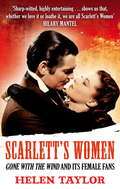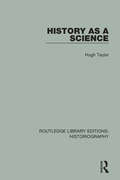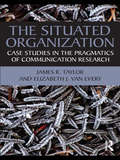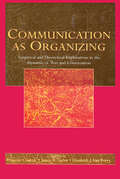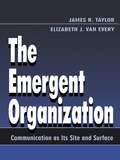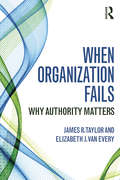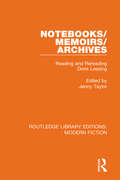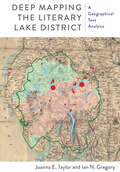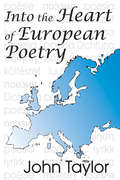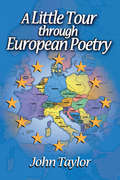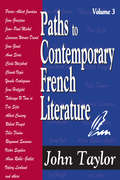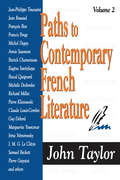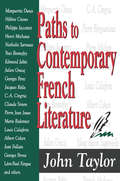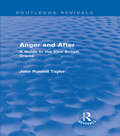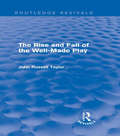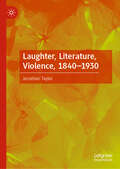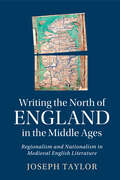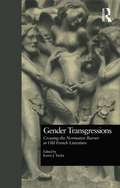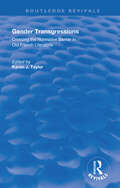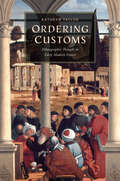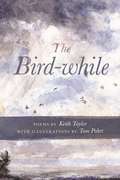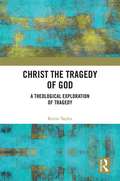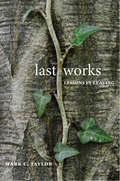- Table View
- List View
Scarlett's Women: 'Gone With the Wind' and its Female Fans
by Helen TaylorOne of the most successful books ever published and the basis of one of the most popular and highly praised Hollywood films of all time, Gone With the Wind has entered world culture in a way that few other stories have. Seventy-five years on from the cinematic release of Gone with the Wind, Helen Taylor looks at the reasons why the book and film have had such an appeal, especially for women. Drawing on letters and questionnaires from female fans, she brings together material from southern history, literature, film and feminist theory and discusses the themes of the Civil War and issues of race. She has previously written Gender, Race and Region in the writings of Grace King, Ruth McEnery Stuart and Kate Chopin and The Daphne Du Maurier Companion.culture and the reasons why Gone With the Wind maintains a special place in female hearts. 'fascinating . . . an original original' Suzy Feay, Time Out
Scarlett's Women: 'Gone With the Wind' and its Female Fans
by Helen TaylorOne of the most successful books ever published and the basis of one of the most popular and highly praised Hollywood films of all time, Gone With the Wind has entered world culture in a way that few other stories have.Seventy-five years on from the cinematic release of Gone with the Wind, Helen Taylor looks at the reasons why the book and film have had such an appeal, especially for women. Drawing on letters and questionnaires from female fans, she brings together material from southern history, literature, film and feminist theory and discusses the themes of the Civil War and issues of race. She has previously written Gender, Race and Region in the writings of Grace King, Ruth McEnery Stuart and Kate Chopin and The Daphne Du Maurier Companion.
History As A Science (Routledge Library Editions: Historiography)
by Hugh TaylorExamining why the study of history as a science was not as advanced as other disciplines, the author of this book, originally published in 1933, examines the arguments in the controversy of what the object of history should be. He then discusses the impact of the study of history on government, war and revolution .
The Situated Organization: Case Studies in the Pragmatics of Communication Research
by James R. Taylor Elizabeth J. Van EveryThe Situated Organization explores recent research in organizational communication, emphasizing the organization as constructed in and emerging out of communication practices. Working from the tradition of the Montreal School in its approach, it focuses not only on how an organization’s members understand the purposes of the organization through communication, but also on how they realize and recognize the organization itself as they work within it. The text breaks through with an alternative viewpoint to the currently popular idea of 'organization-as-network,' viewing organization instead as a configuration of agencies, and their fields of practice. It serves as an original, comprehensive, and well-written text, elaborated by case studies that make the theory come to life. The substantial ideas and insights are presented in a deep and meaningful way while remaining comprehensible for student readers. This text has been developed for students at all levels of study in organizational communication, who need a systematic introduction to conducting empirical field research. It will serve as an invaluable sourcebook in planning and conducting research.
Communication as Organizing: Empirical and Theoretical Explorations in the Dynamic of Text and Conversation (Routledge Communication Series)
by James R. Taylor Elizabeth J. Van Every François CoorenCommunication as Organizing unites multiple reflections on the role of language under a single rubric: the organizing role of communication. Stemming from Jim Taylor's earlier work, The Emergent Organization: Communication as Its Site and Surface (LEA, 2000), the volume editors present a communicational answer to the question, "what is an organization?" through contributions from an international set of scholars and researchers. The chapter authors synthesize various lines of research on constituting organizations through communication, describing their explorations of the relation between language, human practice, and the constitution of organizational forms. Each chapter develops a dimension of the central theme, showing how such concepts as agency, identity, sensemaking, narrative and account may be put to work in discursive analysis to develop effective research into organizing processes. The contributions employ concrete examples to show how the theoretical concepts can be employed to develop effective research. This distinctive volume encourages readers to discover and develop a truly communicational means of addressing the question of organization, addressing how organization itself emerges in the course of communicational transactions. In presenting a single and entirely communicational perspective for exploring organizational phenomena, grounded in the discourse of communicational transactions and the establishment of relationships through language, it is required reading for scholars, researchers, and graduate students working in organizational communication, management, social psychology, pragmatics of language, and organizational studies.
The Emergent Organization: Communication As Its Site and Surface (Routledge Communication Series)
by James R. Taylor Elizabeth J. Van EveryToday's organizations face a wide variety of challenges, including such contradictions as maintaining unity of action while becoming increasingly diverse. Even the definition of organization is changing and evolving. In this monograph, the authors apply their academic and professional experience to address the notion of "organization," setting forth communication as the essential modality for the constitution of organization--explaining how an organization can at the same time be both local and global, and how these properties which give organization continuity over time and across geographically dispersed situations also come to be manifested in the day-to-day of human interpersonal exchange. As a radical rethinking of the traditional discourse approaches in communication theory, this book develops a conceptual framework based on the idea that "organization" emerges in the mix of conversational and textual communicative activities that together construct organizational identity. Applying concepts from the philosophy of language, linguistics, semiotics, system design, sociology and management theory, the authors put forth a convincing argument demonstrating the materiality of language and its constructive role in organization and society.
When Organization Fails: Why Authority Matters
by James R. Taylor Elizabeth J. Van EveryWhen Organization Fails: Why Authority Matters develops the study of authority as an area of investigation in organizational communication and management. As a research topic, authority has rarely been addressed in depth in the management and organizational communication literature. It is critical, however, to maintaining unity of purpose and action of the organization, and it is frequently cited by organizational members themselves. Utilizing two case studies, examined in depth and based on the accounts of the individuals involved, authors James R. Taylor and Elizabeth J. van Every explore the pathology of authority when it fails. They develop a theoretical foundation that aims to illuminate authority by positioning it in communication theory. This volume sets the stage for a new generation of scholars who can make their reputations as experts on authority, and is intended for scholars and graduate students in organizational communication, leadership, and discourse analysis. It also offers practical insights to consultants and management experts worldwide.
Notebooks/Memoirs/Archives: Reading and Rereading Doris Lessing (Routledge Library Editions: Modern Fiction #24)
by Jenny TaylorSince The Grass is Singing was published in 1950, Doris Lessing has commanded a widespread and heterogeneous readership. Written from a feminist political perspective, and employing diverse modes of critical analysis, the present volume, originally published in 1982, aims to combine detailed technical exploration of Lessing’s work with a sense of this extraordinary writer’s historical, political and personal development. The essays, placed in political and biographical context by the editor’s introduction, span the entire length of Lessing’s career, up to Canopus in Argos, and includes studies of A Man and Two Women, The Golden Notebook and The Children of Violence as well as an interview with David Gladwell, director of Memoirs of a Survivor.
The Cambridge Companion to Wilkie Collins
by Jenny Bourne TaylorWilkie Collins was one of the most popular writers of the nineteenth century. He is best known for The Woman in White, which inaugurated the sensation novel in the 1860s, and The Moonstone, one of the first detective novels; but he wrote over 20 novels, plays and short stories during a career that spanned four decades. This Companion offers a fascinating overview of Collins's writing. In a wide range of essays by leading scholars, it traces the development of his career, his position as a writer and his complex relation to contemporary cultural movements and debates. Collins's exploration of the tensions which lay beneath Victorian society is analysed through a variety of critical approaches. A chronology and guide to further reading are provided, making this book an indispensable guide for all those interested in Wilkie Collins and his work.
Deep Mapping the Literary Lake District: A Geographical Text Analysis (Aperçus: Histories Texts Cultures)
by Joanna E. Taylor Ian N. GregoryEngland’s famed Lake District—best known as the place of inspiration for the Wordsworths, Samuel Taylor Coleridge, and other Romantic-era writers—is the locus of this pioneering study, which implements and critiques a new approach to literary analysis in the digital age. Deploying innovative methods from literary studies, corpus linguistics, historical geography, and geographical information science, Deep Mapping the Literary Lake District combines close readings of a body of writing about the region from 1622-1900 with distant approaches to textual analysis. This path-breaking volume exemplifies interdisciplinarity, demonstrating how digital humanities methodologies and geospatial tools can enhance our appreciation of a region whose topography has been long recognized as fundamental to the shape of the poetry and prose produced within it.
Into the Heart of European Poetry
by John TaylorJohn Taylor's brilliant new book examines the work of many of the major poets who have deeply marked modern and contemporary European literature. Venturing far and wide from the France in which he has lived since the late 1970s, the polyglot writer-critic not only delves into the more widely translated literatures of Italy, Greece, Germany, and Austria, but also discovers impressive and overlooked work in Slovenia, Bosnia, Hungary, Finland, Norway, and the Netherlands in this book that ranges over nearly all of Europe, including Russia.While providing this stimulating and far-ranging critical panorama, Taylor brings to light key themes of European writing: the depth of everyday life, the quest of the thing-in-itself, metaphysical aspiration and anxiety, the dialectics of negativity and affirmation, subjectivity and self-effacement, and uprootedness as a category that is as ontological as it is geographical, historical, political, or cultural. The book pays careful attention to the intersection of writing and history (or politics), as several poets featured here have faced the Second World War, the Holocaust, Communism, the fall of Communism, or the war in the former Yugoslavia.Taylor gives the work of renowned, upcoming, and still little-known poets a thorough look, all the while scrutinizing recent translations of their verse. He highlights several poets who are also masters of the prose poem. He includes a few novelists who have fashioned a particularly original kind of poetic prose, that stylistic category that has proved so difficult for critics to define. Into the Heart of European Poetry should be of immediate interest to any reader curious about the aesthetic and philosophical ideas underlying major trends of contemporary European writing. In a day and age when much too little is translated and thus known about foreign literature, and when Europeans themselves are pondering the common denominators of their own culture, this book is a
A Little Tour Through European Poetry
by John TaylorThis book is both a sequel to author John Taylor's earlier volume Into the Heart of European Poetry and something different. It is a sequel because this volume expands upon the base of the previous book to include many more European poets. It is different in that it is framed by stories in which the author juxtaposes his personal experiences involving European poetry or European poets as he travels through different countries where the poets have lived or worked. Taylor explores poetry from the Czech Republic, Denmark, Lithuania, Albania, Romania, Turkey, and Portugal, all of which were missing in the previous gathering, analyzes heady verse written in Galician, and presents an important poet born in the Chuvash Republic. His tour through European poetry also adds discoveries from countries whose languages he reads fluently-Italy, Germany (and German-speaking Switzerland), Greece, and France. Taylor's model is Valery Larbaud, to whom his criticism, with its liveliness and analytical clarity, is often compared. Readers will enjoy a renewed dialogue with European poetry, especially in an age when translations are rarely reviewed, present in literary journals, or studied in schools. This book, along with Into the Heart of European Poetry, motivates a dialogue by bringing foreign poetry out of the specialized confines of foreign language departments.
Paths to Contemporary French Literature: Volume 3
by John TaylorPraised for his independence, curiosity, intimate knowledge of French literature, and sharp reader's eye, John Taylor is a writer-critic who is naturally skeptical of literary fashions, overnight reputations, and readymade academic categories. Here he examines various genres of politically committed literature (such as Jean Hatzfeld's "narratives" about Rwanda or Tchicaya U Tam'si's verse), some overlooked fiction, and several provocative experiments with literary form (ranging from the poetry of Jean-Paul Michel and Marie etienne to the "three-line novels" of Felix Feneon).Taylor continues to reveal the remarkable resourcefulness of French writing. Besides drawing attention to authors (like Dai Sijie or Albert Cossery) who have come to French from other languages, he has added younger novelists to his critical panorama.Challenging persistent cliches and recovering deserving voices from unjust neglect, Taylor's vision of French literature conjures up the image of a vital nexus. Poetry crisscrosses with prose, writers from one generation meet up with those from the next or the previous one, while the philosophical ideas underlying French writing are scrutinized. This is an essential guide to the realities of French culture today.
Paths to Contemporary French Literature: Volume 2
by John TaylorThe first volume of Paths to Contemporary French Literature offered a critical panorama of over fifty French writers and poets. With this second volume, John Taylor an American writer and critic who has lived in France for the past thirty years continues this ambitious and critically acclaimed project.Praised for his independence, curiosity, intimate knowledge of European literature, and his sharp reader's eye, John Taylor is a writer-critic who is naturally skeptical of literary fashions, overnight reputations, and readymade academic categories. Charting the paths that have lead to the most serious and stimulating contemporary French writing, he casts light on several neglected postwar French authors, all the while highlighting genuine mentors and invigorating newcomers. Some names (Patrick Chamoiseau, Pascal Quignard, Jean-Philippe Toussaint, Jean Rouaud, Francis Ponge, Aime Cesaire, Marguerite Yourcenar, J. M. G. Le Clezio) may be familiar to the discriminating and inquisitive American reader, but their work is incisively re-evaluated here. The book also includes a moving remembrance of Nathalie Sarraute, and an evocation of the author's meetings with Julien Gracq Other writers in this second volume are equally deserving authors whose work is highly respected by their peers in France yet little known in English-speaking countries. Taylor's pioneering elucidations in this respect are particularly valuable.This second volume also examines a number of non-French, originally non-French-speaking writers (such as Gherasim Luca, Petr Kral, Armen Lubin, Venus Ghoura-Khata, Piotr Rawicz, as well as Samuel Beckett) who chose French as their literary idiom. Taylor is in a perfect position to understand their motivations, struggles, and goals. In a day and age when so little is known in English-speaking countries about foreign literature, and when so little is translated, the two volumes of Paths to Contemporary French Literature are absorb
Paths to Contemporary French Literature: Volume 1
by John TaylorAlthough the great French novelists of the last two centuries are widely read in America, there is a widespread notion that little of importance has happened in French literature since the heyday of Sartre, Camus, and the nouveau roman. Some might argue that even well read Americans are ignorant about what is happening in European literature generally. Certainly, there has never been so few translations of foreign books in the United States, or so little coverage of foreign writers. Curious American readers need new, up-to-date information and analyses about what is happening elsewhere. Paths to Contemporary French Literature is a stimulating and much-needed guide to the major currents of one of the world's great literatures.This critical panorama of contemporary French literature introduces English-language readers to over fifty important writers and poets, many of whom are still little known outside of France. Emphasizing authors who are admired by their peers (as opposed to those with overnight reputations), John Taylor offers a compelling insider's view. The pioneering essays included in this book offer incisive analyses of the ideas motivating current writing and delve into a writer's or poet's entire output. Although some names may be familiar (Marguerite Duras, Hulbne Cixous, Philippe Jaccottet, Henri Michaux), the reader obtains fresh reappraisals of their seminal work. Especially noteworthy, however, are Taylor's lively introductions to many other key writers who either have not yet crossed the English Channel, let alone the Atlantic. Combating the notion that French literature is overtly intellectual, inaccessible, or interested only in formal experimentation, Taylor shows that many French writers are instead acutely inquisitive about the outside world, shrewd observers of reality, even very funny.Although not conceived as a reference book, the volume possesses some qualities of a reference work: a good bibliography, reliable dates and biographical facts. Paths to Contemporary French Literature will be of interest to students of French literature and culture, literary scholars, and readers of contemporary fiction and poetry.
Anger and After: A Guide to the New British Drama (Routledge Revivals)
by John Russell TaylorWhen it was first published in 1962, Anger and After was the first comprehensive study of the dramatic movement which began in 1956 with the staging of John Osborne’s Look Back in Anger and has since brought forward such dramatists as Brendan Behan, Harold Pinter, N. F. Simpson, John Arden and Arnold Wesker. Thoroughly revised in 1969, this book remains important reading for theatre students in need of a comprehensive and authoritative guide to post-Osborne drama in Britain.
The Rise and Fall of the Well-Made Play (Routledge Revivals)
by John Russell TaylorFirst published in 1967, this title considers the idea of the ‘well-made play’ in the context of how and why it has been devalued and how far, in allowing it to be devalued, we have lost sight of certain important elements of the theatre. The focus of the book is largely on the development of British theatre and those who have been instrumental to it. This is an indispensable introduction for any student with an interest in the history and development of the British theatre.
Laughter, Literature, Violence, 1840–1930
by Jonathan TaylorLaughter, Literature, Violence, 1840-1930 investigates the strange, complex, even paradoxical relationship between laughter, on the one hand, and violence, war, horror, death, on the other. It does so in relation to philosophy, politics, and key nineteenth- and twentieth-century literary texts, by Edgar Allan Poe, Edmund Gosse, Wyndham Lewis and Katherine Mansfield – texts which explore the far reaches of Schadenfreude, and so-called ‘superiority theories’ of laughter, pushing these theories to breaking point. In these literary texts, the violent superiority often ascribed to laughter is seen as radically unstable, co-existing with its opposite: an anarchic sense of equality. Laughter, humour and comedy are slippery, duplicitous, ambivalent, self-contradictory hybrids, fusing apparently discordant elements. Now and then, though, literary and philosophical texts also dream of a different kind of laughter, one which reaches beyond its alloys – a transcendent, ‘perfect’ laughter which exists only in and for itself.
Writing the North of England in the Middle Ages: Regionalism and Nationalism in Medieval English Literature (Cambridge Studies in Medieval Literature #119)
by Joseph TaylorWriting the North of England in the Middle Ages offers a literary history of the North-South divide, examining the complexities of the relationship – imaginative, material, and political – between North and South in a wide range of texts. Through sustained analysis of the North-South divide as it emerges in the literature of medieval England, this study illustrates the convoluted dynamic of desire and derision of the North by the rest of country. Joseph Taylor dissects England's problematic sense of nationhood as one which must be negotiated and renegotiated from within, rather than beyond, national borders. Providing fresh readings of texts such as Chaucer's Canterbury Tales, the fifteenth-century Robin Hood ballads and the Towneley plays, this book argues for the North's vital contribution to processes of imagining nation in the Middle Ages and shows that that regionalism is both contained within and constitutive of its apparent opposite, nationalism.
Gender Transgressions: Crossing the Normative Barrier in Old French Literature (Garland Library of Medieval Literature #Vol. 2064)
by Karen J. TaylorFirst published in 1998. Routledge is an imprint of Taylor & Francis, an informa company.
Gender Transgressions: Crossing the Normative Barrier in Old French Literature (Garland Library Of Medieval Literature Ser. #Vol. 2064)
by Karen J. TaylorFirst published in 1998 this collection, comprising nine critical essays from prominent and emerging medievalists, seeks to explore the different ways in which French authors of the Middle Ages transgress normative social and cultural codes in their literary works.
Ordering Customs: Ethnographic Thought in Early Modern Venice (The Early Modern Exchange)
by Kathryn TaylorOrdering Customs explores how Renaissance Venetians sought to make sense of human difference in a period characterized by increasing global contact and a rapid acceleration of the circulation of information. Venice was at the center of both these developments. The book traces the emergence of a distinctive tradition of ethnographic writing that served as the basis for defining religious and cultural difference in new ways. Taylor draws on a trove of unpublished sources—diplomatic correspondence, court records, diaries, and inventories—to show that the study of customs, rituals, and ways of life not only became central in how Venetians sought to apprehend other peoples, but also had a very real impact at the level of policy, shaping how the Venetian state governed minority populations in the city and its empire. In contrast with the familiar image of ethnography as the product of overseas imperial and missionary encounters, the book points to a more complicated set of origins.
The Bird-while (Made in Michigan Writers Series)
by Keith Taylor“A Bird-while. In a natural chronometer, a Bird-while may be admitted as one of the metres, since the space most of the wild birds will allow you to make your observations on them when they alight near you in the woods, is a pretty equal and familiar measure” (Ralph Waldo Emerson’s Journal, 1838). Without becoming didactic or pedantic about the spiritual metaphor hidden in the concept of the “bird-while,” Keith Taylor’s collection evokes certain Eastern meditative poets who often wrote in an aphoristic style of the spirit or the mind mirroring specific aspects of the natural world. The Bird-while is a collection of forty-nine poems that meditate on the nature—both human and non-human—that surrounds us daily. Taylor is in the company of naturalist poets such as Gary Snyder and Mary Oliver—poets who often drew from an Emersonian sensibility to create art that awakens the mind to its corresponding truths in the natural world. The book ranges from the longer poem to the eight line, unrhymed stanza similar to that of the T'ang poet Han-Shan. And without section breaks to reinforce the passing of time, the collection creates greater fluidity of movement from one poem to the next, as if there is no beginning or end, only an eternal moment that is suspended on the page. Tom Pohrt’s original illustrations are scattered throughout the text, adding a stunning visual element to the already vivid language. The book moves from the author’s travel accounts to the destruction of the natural world, even species extinction, to more hopeful poems of survival and the return of wildness. The natural rhythm is at times marred by the disturbances of the twenty-first century that come blaring into these meditations, as when a National Guard jet rumbles over the treeline upsetting a hummingbird, and yet, even the hummingbird is able to regain its balance and continue as before. At its core, Taylor’s collection is a reminder of Emerson’s idea that natural facts are symbols of spiritual facts. These well-crafted poems will be easily accessible to any literary audience, with a more particular attraction to readers of contemporary poetry sensitive to the marriage of an Eastern sensibility with contemporary American settings and scenes.
Christ the Tragedy of God: A Theological Exploration of Tragedy
by Kevin TaylorTragedy is a genre for exploring loss and suffering, and this book traces the vital areas where tragedy has shaped and been a resource for Christian theology. There is a history to the relationship of theology and tragedy; tragic literature has explored areas of theological interest, and is present in the Bible and ongoing theological concerns. Christian theology has a long history of using what is at hand, and the genre of tragedy is no different. What are the merits and challenges of placing the central narrative of the passion, death and resurrection of Christ in tragic terms? This study examines important and shared concerns of theology and tragedy: sacrifice and war, rationality and order, historical contingency, blindness, guilt, and self-awareness. Theologians such as Reinhold Niebuhr, Hans Urs von Balthasar, Martin Luther King Jr., Simone Weil, and Boethius have explored tragedy as a theological resource. The historical relationship of theology and tragedy reveals that neither is monolithic, and both remain diverse and unstable areas of human thought. This fascinating book will be of keen interest to theologians, as well as scholars in the fields of literary studies and tragic theory.
Last Works: Lessons in Leaving
by Mark C. TaylorA powerful consideration of the lessons imparted in the final works of essential writers and philosophers For many today, retirement and the leisure said to accompany it have become vestiges of a slower, long-lost time. In a world where the sense of identity is tied to work and careers, to stop working often is to become nobody. In this deeply perceptive and personal exploration of last works, Mark C. Taylor poignantly explores the final reflections of writers and thinkers from Kierkegaard to David Foster Wallace. How did they either face or avoid ending and leaving? What do their lessons in ending teach us about living in the time that remains for us? Some leavings brought relief, even joy, while others brought pain and suffering. Whether the cause was infirmity, impending death, or simply exhaustion and ennui, the ways these influential voices fell silent offer poignant examples of people withdrawing from the world’s stage. Throughout this learned and moving book, Taylor probes how the art of living involves learning to leave gracefully.
